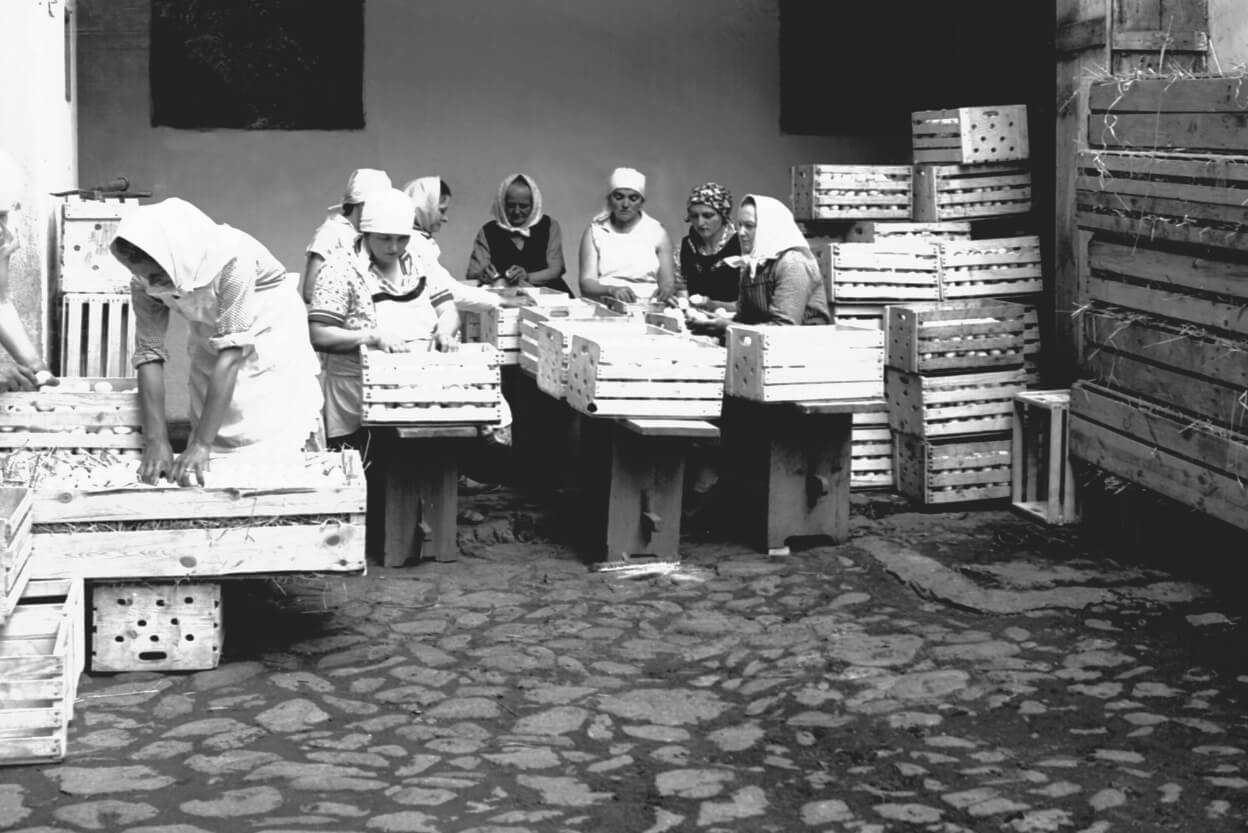Company history
CEREALIS, a.s. builds on the rich history of its predecessors. The company represents a continuation of the Czech and partly Slovak pasta industry. The most important and most remarkable in the company’s history are the two factories that are still in operation today. The Zátka Brothers' factory in Březí near Boršov nad Vltavou was part of our company until 2023. The legacy of the important South Bohemian business family Zátka is also a great commitment for the current company Bratři Zátkové SE.

THE FACTORY IN LITOVEL: ADRIANA – VÝROBCE TĚSTOVIN, S.R.O.
After the Velvet Revolution, the agricultural cooperative Zemědělské družstvo Červenka came up with the idea of building a new food production plant in the centre of the fertile region and thus expanding the cooperative’s activities. It was to be a factory for pasta, parmesan cheese and ham (Italian prosciutto). As times favoured new projects, two of them were completed. In the end, the two factories were not built under the agricultural cooperative, but as private companies.
The parmesan factory, which is adjacent to the current pasta factory, is the largest cheese factory in the Czech Republic.
The pasta factory in Litovel was acquired by Europasta in 2003 as part of the company’s solution to its financial problems, caused mainly by the collapse of the Russian market in 1998. As it was the newest production plant in the Czech Republic, built on a greenfield site in an excellent location, it became the basis for building the current largest production plant in Central Europe.
Between 2009 and 2014, in particular, the factory underwent extensive investments that increased its original capacity from 4 tons/hour (4 production lines) to the current capacity of 14 tons/hour (5 production lines). The Litovel plant has gradually concentrated production from all other production sites of the company.
Another acquisition was the purchase of Spojené těstárny CZ and Spojené cestovinárně SK from the Odkolek company in 2006. These companies operated several production plants. At the time of the purchase, only the production plant in Bratislava was already in operation, the production of which was moved to Litovel.
In 2008, another dough factory in Rosice u Brna operated by Tero Rosice, s.r.o., was purchased from Penam, a.s. The transaction was made in exchange for Europasta’s bakery assets in České Budějovice (formerly Pekast, s.r.o.). Since the acquisition’s main goal was to acquire the Rosické brand and the production equipment, production was again concentrated in the main production plant in Litovel.
The culmination of the changes in the overall structure of the company was the merger of all group companies into one company, the current Europasta SE, in 2010. The merger and concentration of production, together with the arrival of internationally respected shareholders, has elevated Europasta to its current form as a modern manufacturing company with a high production capacity ready to meet the challenges of today’s rapidly developing market.
In 2023, the Boršov nad Vltavou division was spun off to form the current company Europasta a.s., based in Třech Dvory u Litovle. This company remains the largest Central European producer of pasta.
From January 1st, 2025, the name of the company Europasta a.s. will be changed to CEREALIS, a.s. The reason is the change in shareholder's structure. 100 % of company shares belong to the Portuguese owner CEREALIS – PRODUTOS ALIMENTARES, S.A. AS OF October 10th, 2024. Cerealis is one of the largest Portuguese agri-food companies processing cereals. The company operates in the markets of pasta, flour, breakfast cereals, cereal bars, biscuits and culinary flours.
THE FACTORY IN BORŠOV NAD VLTAVOU: ZÁTKA BROTHERS
The beginnings of the Zátka brothers’ factory dates back to 1884, when brothers Vlastimil Zátka and Dobroslav Zátka started the first dough factory in Austria-Hungary in Boršov nad Vltavou. In the early days, the key to success was to convince housewives who were used to preparing their own homemade pasta that industrially produced pasta was of at least the same quality.
From 1929 to 1939, production was expanded with new automatic machines. Thank to this, for example, Zátka’s pasta proved the most resistant to deterioration in a tropical environment in an international competition and could thus be exported as far as Malaysia.
During the Second World War, the Germans confiscated all of the Zátka family’s property. Food production was suspended and replaced by military production.
In 1948, the company was nationalised and incorporated into a state-owned enterprise under the name “Mlýny a těstárny, s.p., závod 2 Březí” and became the centre of the South Bohemian mill and dough industry. Until 1989, despite limited technical development, the quality of production was maintained and the dough factory continued to rank among the best in the country.
The factory (a former national enterprise) was returned to the Zátka family only in 1991 under an economic lease. The family and the management permanently acquired it by direct sale on 1st January 1994. At this time, technological modernisation was carried out and Italian high-temperature lines for the production of short and long pasta, controlled by computer, were put into operation. In addition to the industrial investments, the traditional brands Zátkovy pasta and Zátkova flour were renewed.
In 2000, the descendants of the Zátka family and the then management sold their shares to a new shareholder, Europasta B.V. This company then continued with acquisitions to create a large Czech-Slovak group.
In 2023, the division in Boršov nad Vltavou was spun off to form a new company, Bratři Zátkové SE. This company continues to produce rolled pasta and, above all, to produce and sell flour.
Contact us
Tři Dvory 97, Litovel
784 01 - Česká republika
Company registered in the Commercial Register
of the Regional Court in Ostrava,
Section B, Insert 11532.


